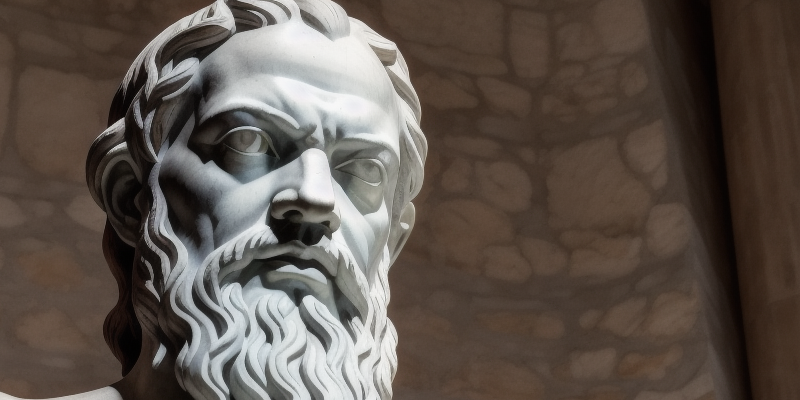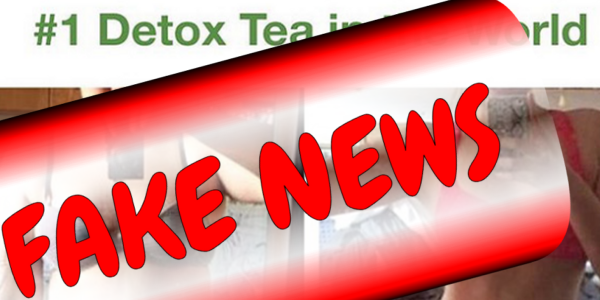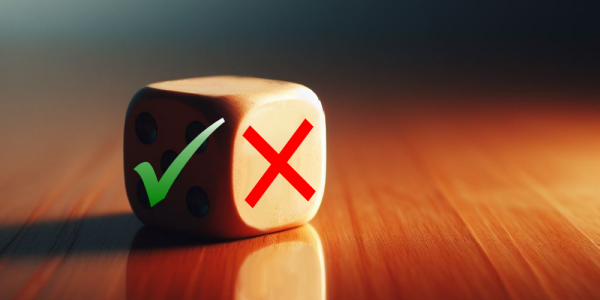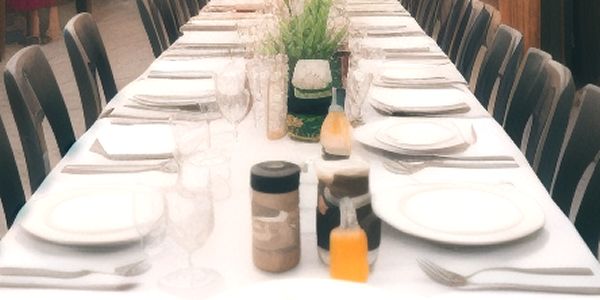Critical Thinking

Back in the days
Socrates set the foundations of critical thinking as: "question everything". He was popular in the public spaces, the agora, especially among the younger generation, and consequently was hated by the powers in Athens who feared losing control of the population, so he was put on trial and promptly executed to save the Athenian ideology. Think about Socrates in today's world, Socrates as a social media influencer (the agora in today's world) challenging politics, religion, and society. That would be refreshing and exciting being that social media is mostly void of any critical thinking.Nowadays
One would think that after 2500 years, critical thinking would have become integral to everyday life. It certainly is in the world of exact sciences, but even in medical sciences, the vaccine controversy shows a sore lack of it, along with any common sense. When it comes to social sciences, it is like Socrates never existed, and in the world of social media, it is a dangerous alien concept that could wipe out influencers' following, making them look very stupid.
Why beliefs are so much easier
Looks good, don't have to think much, and as many people believe it, then it must be true. Add to that, peer pressure to blend in with the in-crowd, and that leaves critical thinking out of the picture. While beliefs come and go on social media, they are more resilient in politics, and long lasting in religion. Worse yet, if you live in a society where failure to follow the dictated beliefs can lead you to end like Socrates, showing any sign of critical thinking could be dangerous to your health.
To be effective and easy to impose, beliefs are white on black, strictly binary as to what is right and
what is wrong. Any shade or continuum challenges the validity of the belief. Which is not the way nature,
and human nature works.
Take for example "Thou shall not kill". On the surface, it is obviously a good thing in society, but wait!
The original meaning was definitely not about Make Love, Not War. The original Hebrew word was ratsach
means unlawful killing, not killing in a broad sense. Back then, killing your enemy was not only ok, it was
celebrated. But as a belief, it is much easier to keep it simple white on black. So, let's not generalise
beliefs as the good and the bad. Society is not a broad brush stroke of pure white over black ... although
some people strongly believe that being their ideal society ... as long as they hold the brush.
... As long as they hold the brush
That's when you really need critical thinking to keep your mind free of indoctrination and your feet on the ground. You are not supposed to rise to heaven until you are dead. It is a figure of speech of course, unless you have been indoctrinated. Let's consider why so much in culture, society and religion is either white or black, good or bad. It's not the way nature, and human nature, works. People are not white OR black, straight OR gay. Most are somewhere in between. But it makes those established truths simple and easy to justify. Critical thinking is fatal to indoctrination.
Critical thinking is dangerous!
Critical thinking challenges established truths. That's a problem in society, politics or religion as they rely on people believing their established truth without challenge. People do seek to have some fundamental trust in society so that they can have a degree of predictability in life, like food, shelter and security. And that's why indoctrination works: people will trade off truth and transparency for the feeling of security brought by being among people sharing the same beliefs. If one challenges the beliefs, usually because of some degree of critical thinking, they not only become isolated, but they become the enemy as they threaten the shared beliefs.
Do keep emotional thinking, you need both!
Emotional thinking is human instinct. We're wired to react fast, not think deep. Back in the day, if a tiger jumped out of the bushes, you would not pause to analyse the situation, you reacted. Emotional thinking kept you alive! Fear, anger, joy, they all gave us quick shortcuts to act without thinking. They are heuristics, your brain's mental shortcuts to make quick decisions.
The problem with emotional thinking is "history" where past learnings drive decision-making without considering the present facts, without using critical thinking.
Back to the tiger: you are now walking around in a zoo, a tiger jumps at you! Emotional thinking, the heuristics, makes you jump back. Then critical thinking kicks in: "the tiger is in a cage, you are ok". You stop and laugh at your initial reaction. You need both emotional and critical thinking.
Overcome the social barriers
As we saw earlier, critical thinking is controversial as it may weaken or disprove established beliefs. Which is a threat to any homogeneous society, be it a church, a political party, or the local social club. You may find yourself isolated, or rejected from your social or cultural environment for challenging its beliefs. Consider your alternatives before openly challenging beliefs. If you live in a repressive society, your options may be very limited without physically moving away from that environment. On the other hand, if you live within a diverse culture of various beliefs, you can adapt your social environment to better match your own personal beliefs when they no longer match those of the society you grew up with. You will lose friends, you will meet new people you might have never associated with in the past, people who either share your personal beliefs, or simply because they are open-minded.
Let's learn critical thinking skills in three steps:
Step 1:
Question Everything (Yes, EVERYTHING)
Never assume that the answer is right because "it's always been like this" ... "we all know this".
False knowledge is dangerous because you think you know it already, so it must be true.
You naturally resist a different answer, and your first reaction is to discard it without consideration.
- Who is saying this?
- - What are their biases and motivations? They may truly believe it, or they may simply "conform" by saying what is expected of them to say within their society, culture, religion or political affiliation.
- What is the evidence?
- - Is it fact or belief? It may be a belief that is also a fact, or it may not! Gravity is a fact that is easy to prove. The earth is flat is not a fact, but to disprove a believer is a little more complicated.
- What are other perspectives or explanations?
- - There is always another view, consider it. Sometimes the other angle confirms a fact, sometimes it does not.
"Do my beliefs influence my judgment?".
That's emotional thinking getting in the way, and in need of update with facts.
Example - A classic old wives' tale:
"You should not go swimming for two hours after eating".
*** Think ***
- Fact or belief?
- - Look it up!
- Where does it come from?
- - Cultural beliefs, not science. Funny side note: Google says that this belief originated in a 1908 Boy Scout manual.
Step 2:
Challenge your own beliefs
False knowledge is not fake news, it is far more dangerous because it is old knowledge that you acquired in the past, most often from a trusted person, a family member, a teacher, a monk or a priest. Consequently, you have a firm belief that knowledge cannot possibly be wrong, and once you do come to the conclusion that it was false knowledge, it may cause emotions of anger, or despair, about the people you learned that false knowledge from.
Turn the mirror on yourself:- Argue with yourself.
- Have friends who will challenge your beliefs ... amicably!
- Say: "I might be wrong. What if the opposite is true?"
Keep your brain open to possibilities, not in echo chambers.
Step 3:
Draw a reasoned conclusion
Consider the information you now have to make a choice or a decision.
Facts over assumptions, emotions, traditions, and culture:- Assumption: "I know it this way" does not make it true.
- Emotion: "I want it this way" does not change the facts.
- Tradition: "It was always like this" does not make it true.
- Culture: "In our culture ..." is a belief, not a fact.
Critical thinking is not about being right all the time, it's about questioning and wanting to learn more about the subject to be able to form an opinion.
Now it is your turn
Stay curious, stay open to change your mind.



